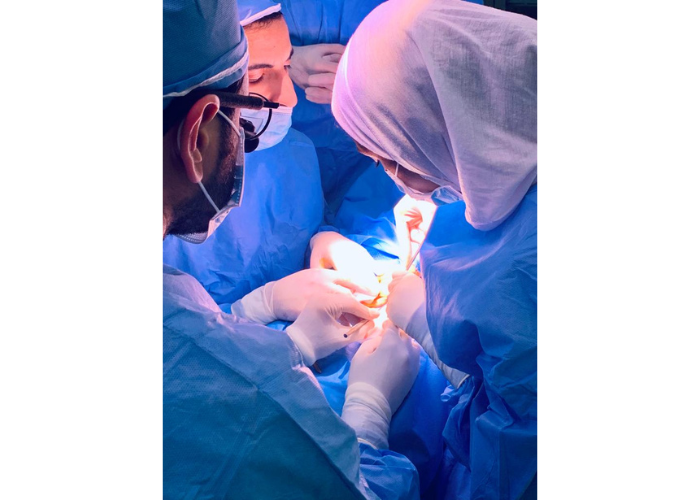
Operation Child Life Medical Mission to Amman, Jordan: 29th April – May 6th
The implications of the Syrian civil war have been catastrophic, leading to a significant displacement of people. These refugees are often forced to relocate to neighboring nations, such as Jordan, with limited access to advanced medical care. Based on the latest review on April 2023 by UNHCR, the number of the registered Syrian refugees in Jordon is about 660,605, however the number may go beyond. Among the many challenges they face, the need for complex reconstructive surgeries stands paramount due to the nature of their injuries, often due to the violence they have escaped.
The Atlantic Humanitarian Relief (AHR), in collaboration with Operation Child Life (OCL), recognized the dire need for advanced surgical interventions in Amman, Jordan. OCL Volunteer, Dr Abdulla A Fakhro, MD FRCSI FACS, a plastic surgeon with prior experience in medical missions and a keen interest in reconstructive surgery, joined the team assisting in this noble cause, working closely with local physicians and surgeons, including Dr. Nabeel Bsiso and Dr. Shawkat Sati, to provide these much-needed services.
Dr Fakhro spent a week in Jordan, volunteering for OCL in the medical mission and also on a complex reconstructive surgery workshop. The workshop was planned alongside the medical interventions, at the request of The Al Istiklaal Hospital, our host institution. A three-full day workshop was designed, emphasizing the implications of the war on Syrian patients, their healthcare challenges, and how reconstructive surgery can vastly improve their quality of life. This workshop was attended by over 30 medical professionals, including consultant surgeons, trainees from general surgery, neurosurgery, vascular surgery, and a myriad of nursing and physical therapists. These workshops were followed by one-on-one hands-on surgical training in the operating room.
Initiatives and Objectives
- Immediate Medical Aid: The most direct benefit of these initiatives is the hope of providing prompt and often life-changing medical aid. Complex reconstructive surgeries may drastically improve the quality of life for these individuals, aiding in physical recovery, reducing pain, improving mobility, and restoring physical appearance.
- Psychological Support: The psychological benefits of reconstructive surgery can’t be understated. For victims of war, disfigurement and disability can lead to social isolation, stigma, and psychological distress. Reconstructive surgeries can help alleviate these issues, bolstering self-esteem and aiding psychological recovery.
- Accessibility: These initiatives bring highly specialized medical care to those who may not otherwise have access due to economic or geographic constraints. We can ensure these populations are addressed by bringing these services directly to areas with high concentrations of Syrian refugees, such as Amman.
- Capacity Building: By training local medical professionals, these initiatives provide immediate aid and ensure the continued availability of advanced medical care in these regions. This investment in local healthcare capacity is crucial for the long-term health outcomes of Syrian refugees.
- Education and Awareness: These initiatives also raise international awareness about displaced individuals’ health crises. The increased visibility can lead to increased support, both in terms of financial aid and professional volunteerism.
- Advocacy: On a broader scale, the visibility of these initiatives can fuel advocacy efforts for policy changes at both local and international levels. This could lead to improved healthcare access, better living conditions, and a resolution to the circumstances causing displacement.
- Long-term Follow-up: With established programs and trained local teams, the possibility of long-term follow-ups for these complex surgeries increases. This continuity of care is crucial for optimal patient outcomes.
- Community Building: Lastly, these initiatives can help foster a sense of community among displaced Syrians. Knowing that dedicated professionals are working to improve their lives can instill a sense of hope and resilience in these communities.
We understand that these initiatives may only solve some Syrian refugees’ challenges. Still, they represent a critical component of a broader strategy to address the healthcare disparities resulting from displacement and conflict. By continuing and expanding such initiatives, we can work towards a world where access to high-quality healthcare is a reality for all, regardless of circumstance.
Teaching and Collaboration
Throughout this mission, there was an ongoing emphasis on education and collaboration. Bedside teachings and intra-operative guidance were provided to the local team to enhance their understanding and ability to manage such complex cases.

